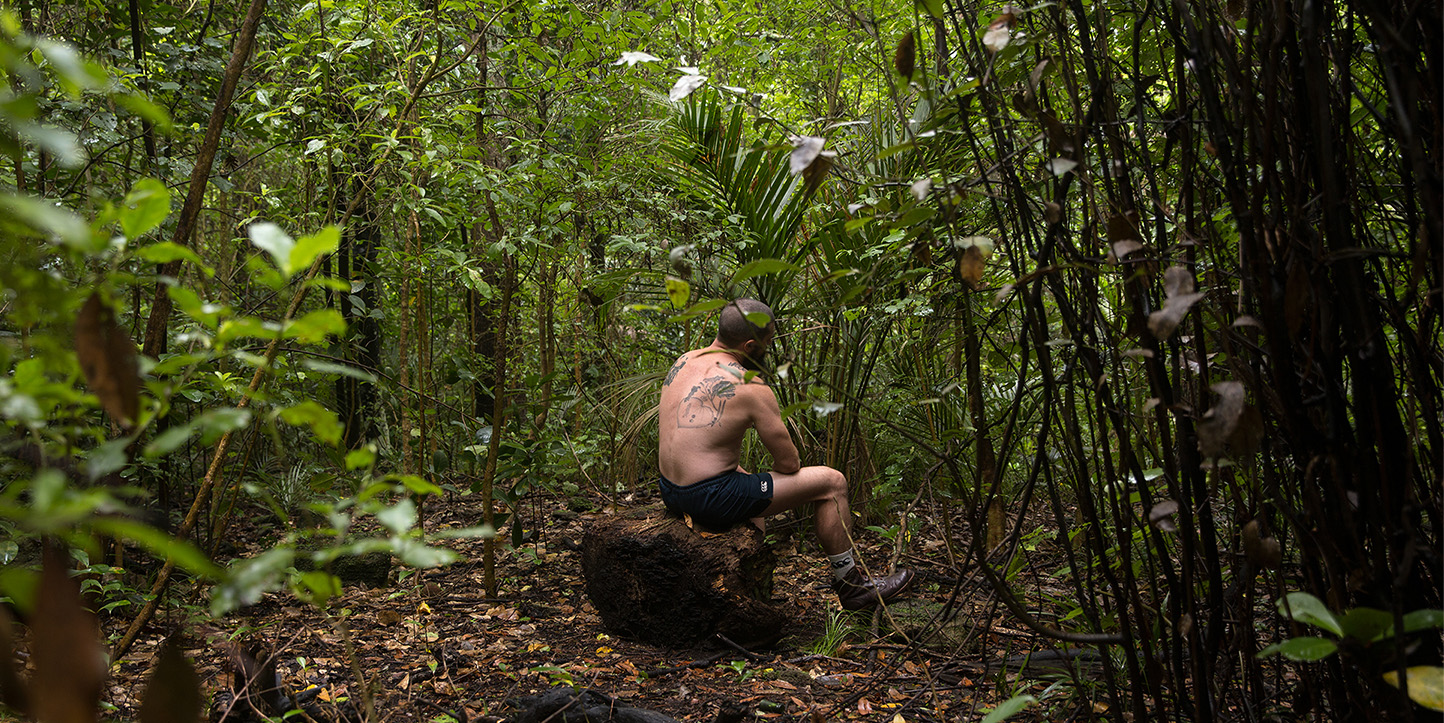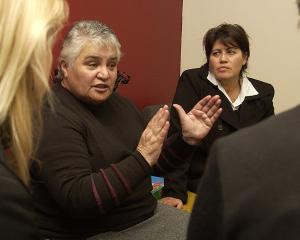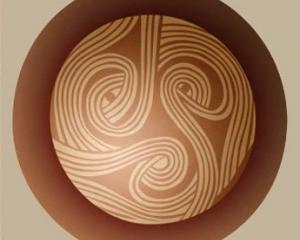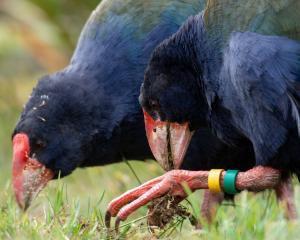
Q The album Zealandia was eight years in the making? How do you maintain the focus over that sort of period of time?
A There was no other option really — I’d made a commitment to myself and to other people at the outset to make this album, and if I didn’t stay on it I suspect I would’ve felt like I was letting myself and other people down.
Q Why Zealandia? Are we talking about the sunken continent?
A That’s right. The relatively recent discovery that New Zealand is not part of Australasia, but instead the Zealandia continent, was my starting point. When I first heard the word "Zealandia" I felt this sense of magic, a genuine wonder at the possibilities it represents. A place lost and a place to be found. It’s one of those special words that rings inside us when we say it. I was excited to think that maybe this geological discovery offers us an opportunity to press reset on our national identity: to acknowledge our past but decide how we want to learn from it. We could be Zealandians, rather than New Zealanders. If we got to start again in this way, how would we do things differently? New passports? Definitely new national anthems.

A I don’t have a particular approach to composing. Every project requires a different methodology and creative process, and I never know what that’s going to look like until I’m in it. Zealandia is about the crossover between nature, identity and politics — very elaborate ideas with lots to talk about, so compositionally I wanted the songs to be like thoughts. Though there are some pop songs on the record, there are just as many that wander off into different directions, not a verse-chorus structure. Nothing could be too rigid on this record, it needed to feel elemental and timeless, so I just let the songs expand slowly over five years or so, in whatever direction they wanted to go in.
Q The album completes a trilogy with The Awakening and Forest, how does it relate to them?
A I wrote The Awakening when I was 22, and it’s very much a Pakeha looking for their place kind of an album. My mother committed suicide when I was 15 and I was still very much dealing with that grief at this time in my life, so I look back at that album now and see how nostalgic it is for my childhood, before she died. It paints a very golden picture of the Port Hills in Christchurch where I grew up, and goes further by researching my French whakapapa in Akaroa. Forest was the yin to that yang. It was a record of bird waiata mostly sung in te reo Maori, and originally written by Hirini Melbourne. It was an expression of my love for te Ao Maori, our birdlife, and Hirini Melbourne’s incredibly important music. So I felt like I had these two albums that were the sides of a coin; Pakeha and Maori-influenced. Rather than treating them as bookends, it felt right to complete the circle and find the balance between the two worlds. That is what Zealandia is.
Q Who were your principal collaborators?
A There were so many, to be honest. The two most crucial people were Andrew Baldwin, who I arranged the instrumentation with, and Andre Upston, engineer of Radio New Zealand in Auckland, who recorded a major chunk of the album including the Dunedin Symphony Orchestra, New Zealand Youth Choir and many solo instruments.
Q There’s harpsichord on the album, electronica and taonga puoro, and beats made with rocks. What influenced the instrumentation for Zealandia?
A It was obvious that if I was going to be dealing with grandiose themes like these that I needed to conjure up a patriotic sound; the kind of sound that makes you want to put your hand on your heart and melt into the land completely satisfied. So there had to be a symphony orchestra, a huge choir, and the harp and harpsichord as the main instrumental narrators. There are around 130 performers on the album, so we definitely achieved the huge factor. When it came to programming the beats, I thought it’d be a great opportunity to let the earth itself be a part of the sound, so with GNS geologist Hamish Campbell and taonga puoro performer Al Fraser we sampled 22 rocks and minerals from the Zealandia continent. We built up a library of rock sounds which I then filtered through sound software and created beat patterns with. So I think the sound of the album is the tension between these western classical instruments, the rock-beats and my voice.
Q How much of the production were you personally responsible for? More than usual?
A I’ve always 100% produced all my own work, but for my two previous records which I made in Auckland, I was essentially directing an engineer when it came to the computer programming and mixing side of things. Since then I moved to Dunedin, and had to take on this role myself. So Zealandia required me to learn to produce in more of a direct, hands-on way: mixing, engineering my own vocal recording, beat-making and a hell of a lot of editing.
Q I understand part of the impetus was your efforts to learn te reo Maori, and, as a Pakeha New Zealander, better understand Maori culture. How did that influence the Zealandia project?
A I studied te reo Maori for two years in preparation for recording my album Forest — I needed that foundational understanding of the language to feel in any way legitimately entitled to record it. Through reo I also studied the most visceral papers I’ve ever taken: contemporary indigenous issues, and Maori representation in the media. It was through this knowledge and the hui we were having as staff and students at the Maori studies department of the University of Auckland that many of the ideas for Zealandia grew. I learned our true history that was never taught to me in high school, about decolonisation, about the institutional and everyday racism that Maori face in this country, and the Maori view of our natural world. These ideas were the starting points of many of the songs on Zealandia.
Q A central strand of the project is a consideration of what colonisation meant and continues to mean. Why is that relevant today?
A I’m really aware that, as a Pakeha, talking about what colonisation really means can be problematic. I base my feelings on it through being educated about what my ancestors are responsible for in Aotearoa — the killings, wars, breaking of the Treaty [of Waitangi], the spread of disease, the introduction of guns and the banning of the language ... We may think we’re through it, but it wasn’t long ago that Helen Clark allowed the unforgivable raids on whanau in Tuhoe, traumatising children, inflating crazy ideas about terrorist camps, and taking far too long to acknowledge that it was a mistake and to apologise. For me, colonisation is an echo that just goes on and on and comes back in different ways, but I have no doubt that many people will have other views, and the most important of these to consider is that of the people who have been colonised.
Q The album is also described as ‘‘twelve new national anthems’’. Do we need new ones?
A There are a lot of things people in this country need quite desperately, and new national anthems definitely isn’t on the priority list. But why not? I’ve sung God Defend New Zealand probably hundreds of times since I was a boy, and it doesn’t stir much up in me, or as far as I can tell, the people around me when it’s sung. It’s like a chore or a bodily function. And don’t even try to unpack what it means: a god defending us? It sounds like a hallucination, but not a cool one. I’m being cheeky by saying that Zealandia is a collection of alternative national anthems, you don’t need to read it that way. But I like the idea of choosing one of these songs for whatever occasion, or as an expression of a particular issue you’re feeling strongly about on a certain day. I’d love to sing one at a Highlanders game.
Q One of the songs, Birth of a Nation, references a racist film of the early 20th century. Was that a provocation to a particular purpose?
A There were two reasons I called that song Birth of a Nation. Firstly, it’s a song that questions what nationhood even is. When did we become a nation? When Kupe arrived? Or Cook? Or was it in 1840? It’s all up for grabs. I also wanted to reference the Griffiths film Birth of a Nation, which depicts the Ku Klux Klan as heroes and black people as kidnapping murderers, acted by white people in black-face. The reference is because New Zealand is still a racist country, and as a Pakeha artist I feel it’s my job to remind other Pakeha of that, because people either seem to forget or not be aware.
Q The title track, Zealandia, closes the album. It includes the lines: ‘‘Zealandia/I love you/You and me are/One and the same, part of a whole’’. What is this song expressing?
A Zealandia is the manifesto of the album; if I had to pick one song that sums up the record, it’d be that one. Zealandia is a love song directly to the land, and accepts that as humans we come from it, and will return to it. In between-times, it seems only fair that we protect it in every way we can, and maybe through that process we might gain an understanding of what nature really is.












